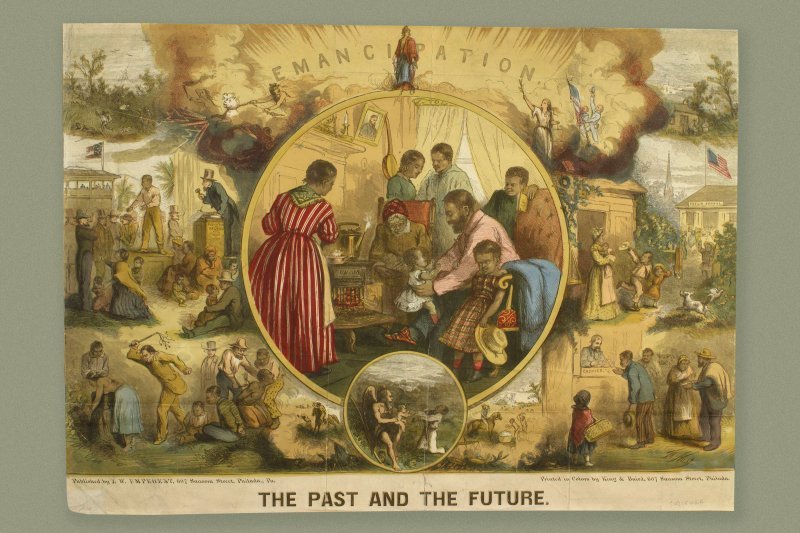A New Report Finds That 45 States Are 'Failing' to Teach Students About the Period That Shaped Race Relations After the Civil War
Emancipation print from 1863 depicting a series of scenes contrasting African American life before and after slavery. Library Company of Philadelphia
By Olivia B. Waxman | January 12, 2022 8:08 AM EST | Time Magazine
In the aftermath of the insurrection a year ago at the U.S. Capitol, many leading historians drew parallels between the violence and the Reconstruction era, the period of political revolution directly following the American Civil War.
“The events we saw reminded me very much of the Reconstruction era and the overthrow of Reconstruction, which was often accompanied, or accomplished, I should say, by violent assaults on elected officials,” Eric Foner, Pulitzer Prize-winning historian and author of Reconstruction: America’s Unfinished Revolution, 1863-1877, said in an interview with the New Yorker published a week later.
Scholars say studying the aftermath of the Civil War can help put in context many of the most seminal events in the U.S. in recent years, from the brutal murder of George Floyd by police in 2020 to the voter suppression laws enacted after Black voters played a big role in helping Joe Biden and Kamala Harris be elected President and Vice President in 2020. But despite the timeliness of the era in today’s climate, many students in American schools will not get a full education on Reconstruction until they get to college.
Click below to read more…
